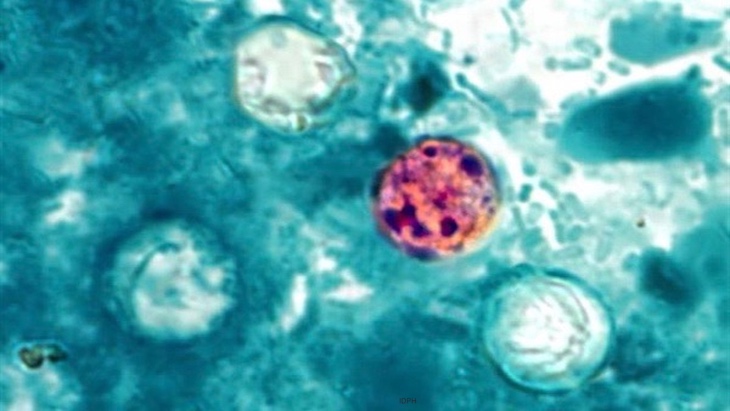In the Center for Disease Control’s weekly Morbidity and Mortality Weekly Report (MMWR) for the week of July 7, 2023, a cyclospora outbreak “partially attributable” to a Caesar salad kit was revealed. This secret 2022 cyclospora outbreak sickened at least 161 people in the state of Florida.

The number of cyclospora cases in the United States has been increasing dramatically since 2016. In that year, there were 537 U.S. acquired cases, which increased to 1194 in 2017, to 3519 in 2018. In 2019, there were 4703 cyclosporiasis cases that were acquired in the United States. The parasite has been found on domestically grown produce.
In 2022, the Florida Department of Health required that all county public health personnel complete the CDC Cyclosporiasis National Hypothesis Generating Questionnaire for all patients with illness onset dates from May through August. Two hundred of those patients reported exposure to a commercially produced package of prewashed salad greens. Eighty-five of of those patients noted a specific brand of Caesar salad kit that contained only romaine lettuce, from a specific grocery store chain. Illness onset dates ranged from June 23 to July 16, 2022.
The brand of Caesar salad kit and the grocery store chain were not named.
An additional 76 patients with cyclosporiasis reported exposure to Caesar salad kits, but these people either could not recall the brand, or bought them from a different chain. Therefore there were a total of 161 potentially linked cases.
The CDC uses a genotyping tool to aid epidemiologic case linkage in near-real time. Among 211 successfully genotyped specimens from Florida, 153 were assigned to the same temporal genetic cluster. This information was shared with the FDA along with source information for the implicated product to facilitate traceback. But the source of the likely contaminated product was not identified.
This is not the first time a cyclospora outbreak has been linked to a bagged salad product. In 2020, a cyclospora outbreak linked to Fresh Express bagged salad sickened 701 people in 14 states, with 38 of those patients hospitalized.




